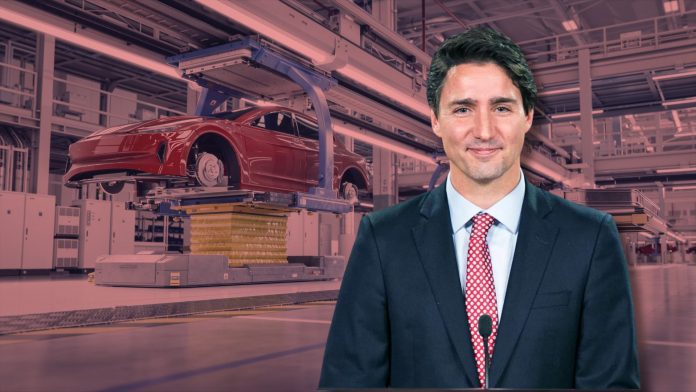Canada is set to impose a 100% tariff on Chinese electric vehicles (EVs), following similar actions by the U.S. and Europe, to protect domestic manufacturing from the influx of low-cost EVs. This move comes as China’s largest EV manufacturer, BYD, prepares to enter the Canadian market, potentially disrupting the North American auto industry.
Prime Minister Justin Trudeau announced that the new tariffs, which will go into effect on October 1, 2024, will apply to electric and select hybrid passenger cars, buses, trucks, and delivery vans. The decision mirrors recent U.S. and European tariffs designed to curb the impact of subsidized Chinese EVs on local markets.
The European Commission recently adjusted its tariff rates, reducing them from the initially proposed levels. Notably, Tesla saw its tariff reduced to 9%, while BYD’s was adjusted to 17%. However, Canada’s approach is more stringent, opting for a flat 100% tariff.
BYD, already a leading EV brand in Mexico, is expected to significantly impact Canada. The company has expanded its North American footprint, including discussions with Canadian government officials about opening retail locations and exploring manufacturing opportunities in Mexico. Despite these ambitions, BYD has no plans to sell passenger EVs in the U.S., citing the country’s complex political landscape.
Trudeau emphasized that the tariffs aim to “level the playing field for Canadian workers.” However, with Chinese automakers like BYD offering low-cost EVs such as the Seagull, which starts at just $9,700 in China, the move could lead to higher costs for Canadian consumers. This decision also raises questions about the broader implications for the North American auto market, particularly as U.S. automakers like Ford and GM face delays and cancellations in their EV initiatives.
However, Ford CEO Jim Farley previously acknowledged the competitive threat Chinese EVs pose, warning that failure to keep pace could result in significant market share and profitability losses. As the Canadian government takes a firm stance against Chinese EV imports, the industry will closely watch the impact on domestic production and consumer choices.



